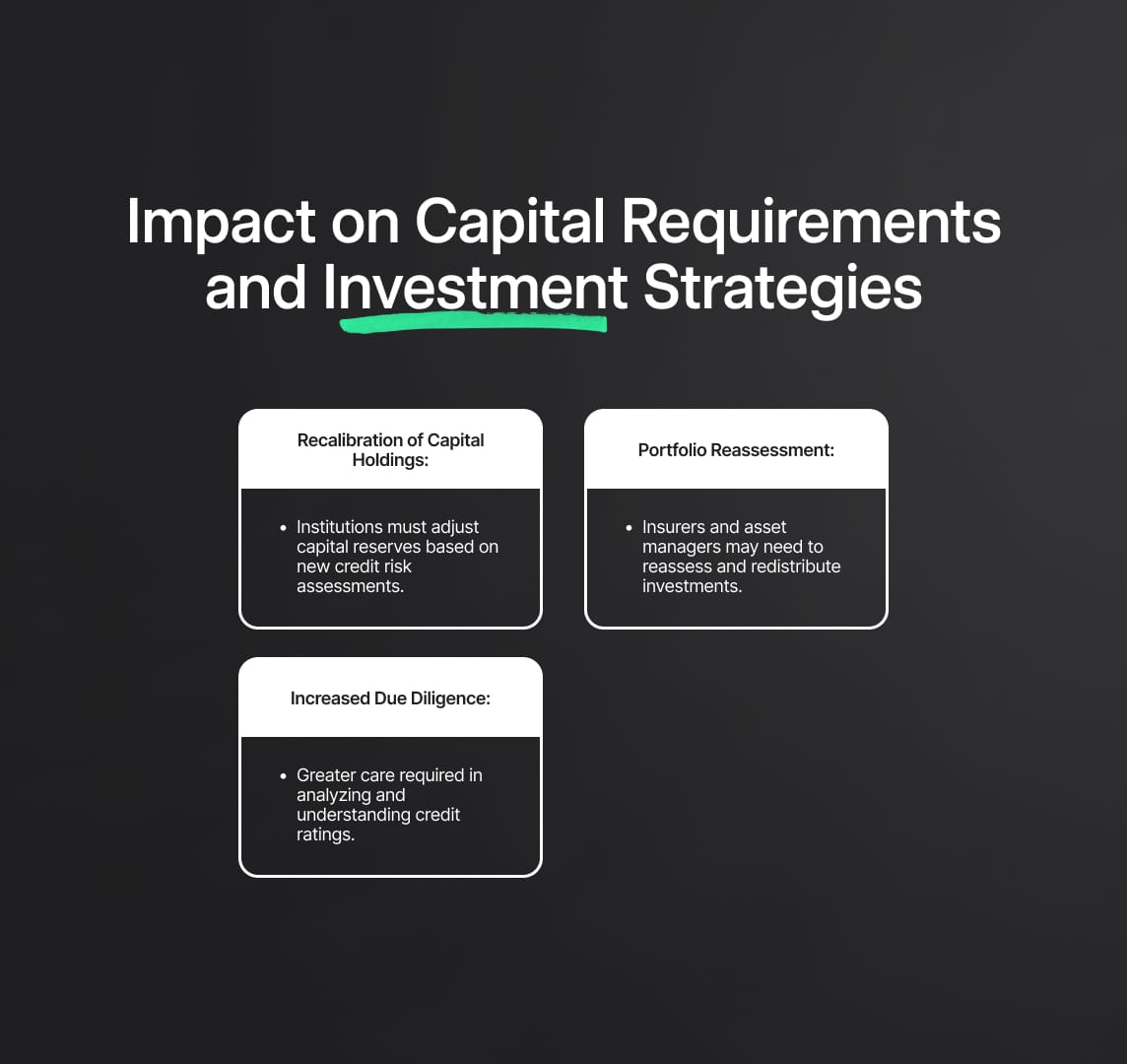Capital Markets Union: AIFMD and UCITS Amendments
EU Capital Markets Union update: AIFMD & UCITS amendments enhance investment fund regulation, streamline management, improve transparency, and facilitate cross-border distribution. Reforms target liquidity, SME financing, boosting financial ecosystem resilience.

The Chamber has as of late embraced modern rules affecting elective venture finance directors and "plain vanilla" EU venture stores. These revisions influence the order administering supervisors of elective speculation stores, which incorporate fence reserves and private value reserves. The point of these changes is to streamline the administrative system, move forward straightforwardness, and encourage cross-border dissemination of reserves. Tragically, the particular points of interest of these corrections were not given in your source. For further clarification and understanding, you will need to search for extra sources that give a more comprehensive diagram of the modern rules.[1]
Source
[1]

The European Union (EU) is reclassifying and its monetary environment is employing an unused administrative bundle: the Capital Markets Union (CMU). This approach is pointing to advance the capital markets over EU, fortifying financial development and growing the range of ventures in both organization and retail markets. The CMU's is based on an integration of significant legislative changes just like the Elective Speculation Support Supervisors Mandate (AIFMD) and the Endeavors for Collective Venture in Transferable Securities (UCITS), focusing on the enhancement of the venture support sector's versatility and speculator assurance components.
Market Accessibility: Advanced Liquidity Management Tools
- Liquidity Management Tools:
- The legislation overhauls present unused point by point instruments for speculation reserves in arrangement to progress liquidity administration, a key point in keeping up certainty and monetary steadiness.
- Funds will be able to handle periods of budgetary flimsiness, coming about in a general enhancement of the EU system's versatility.
- Regulated Loan-Originating Funds:
- Controlled loan-originating reserves open unused opportunities for unused financing channels, this move sets an unusual standard that may empower an enormous transition of the European financial field.
- Small and medium-sized enterprises (SMEs) will take advantage of these improvements finding another way from the usual bank financing.
- Transparency and Supervisory Regimes:
- Delegation dispositions allow transparent improvements by making clearer the supervisory structure and investor safekeeping activities.
- Investment Fund Risk Management:
- Liquidity administration prepares funds with the capability to realign liquidity profiles in a short amount of time making it conceivable to take after and adjust to the continuously changing budgetary market.
- Gates, side pockets, and redemption suspensions offer financial supervisors distinctive adaptable arrangements to secure financial specialist interface and by and large steadiness amid liquidity emergencies.
- Diversification of Financing Sources:
- Regulating funds originating from loans diversify financing options for European companies.
- Direct loans created by investment reserves broaden the scene of financing choices, making a difference for SMEs that ordinarily had restricted access to the usual financing.

Instant Payments: Pioneering Financial Efficiency in the European Union
The launch of instant payment laws by the European Union (EU) represents another digitalisation attempt for financial transactions inside of the European Economic Area (EEA), with the purpose of increasing the efficiency of these organizations' environment.
This procedure guarantees that payments in euros, whether for national or international transactions are now treated in a short amount of time, avoiding long ceases. This regulation incorporates a strategic drive aimed at creating an efficient and user-focused financial ecosystem.
Technical Innovations Behind Instant Payments
The technology this process made possible is based on a safe, high-speed communication network with an up-to-date settlement system that ensures immediate fund availability, with a general upgrade of liquidity set-up. Using innovative technologies such as blockchain and distributed ledger technology (DLT), the European Union wants to decrease transaction fees, increasing transaction speed and security.
Impact on Consumer Experience and Business Operations
Customers will take quick advantage of the funds, a great perspective especially in time-sensitive contexts.For firms it means improved cash flow management and a new array of possibilities, like conducting exchanges is a seamless way without the usual delays related to the standard management of account forms. This administrative alter marks a move towards development within the fintech division, pushing the advancement of unused instalment administrations and stages that capitalise on the points of interest of moment instalment capabilities.

AIFMD and UCITS: Reinforcing Market Integration Through Regulatory Excellence
The latest updates to the Alternative Investment Fund Managers Directive (AIFMD) and the Undertakings for Collective Investment in Transferable Securities (UCITS) also follow this innovative direction aimed at creating a more cohesive, safe, and investor-focused financial ecosystem. These reforms are designed to update the regulatory landscape of the investment fund sector with a focus on:
- Liquidity Management
- Severe liquidity management requirements for fund managers to handle market irregularities and redemption pressures in the best way.
- Stress testing and liquidity buffers to sustain financial stability and shelter investor interests during market constant changes.
- New Framework for Loan-Originating Funds
- Progress of a regulatory structure for funds originating from loans, creating new corporate financing lanes.
- Assist of direct loans from investment funds to businesses, offering substitute funding sources and cultivating economic growth by making financing more obtainable to small and medium-sized enterprises (SMEs).
- Boosting UCITS Funds' Appeal
- Legislative updates aim to increase the appeal of the retail investment sector by presenting advanced liquidity management tools and measures to prevent unnecessary costs to investors.
- These updates have the objective of increasing the safety and appeal of UCITS funds, promoting savings and investment across the European Union while keeping high levels of investor safeguarding.

The Capital Markets Union (CMU) Through Financial Integration
The Capital Markets Union (CMU), complemented by the carefully revised frameworks of the Alternative Investment Fund Managers Directive (AIFMD) and the Undertakings for Collective Investment in Transferable Securities (UCITS), represents a landmark strategy by the European Union (EU) to strenghthen its financial ecosystem.
Objective and Impact on European Market
- Streamlining Capital Flows: Predominant to the integration is the objective of making the European market more adaptable and flexible, especially against global economic changes, always occurring during the last few years.
- Harmonisation through AIFMD and UCITS: These directives are cruscial in lining up investment laws, thereby increasing market practice standards, enhancing investor safeguarding, and ensuring the free and efficient movement of capital across borders.
Strategic Alignment for Growth
- Facilitating Investments: The initiative has been created to do more than just facilitate the process of investment; it wants to drive economic growth, encourage innovation, and strengthen the EU's stature as the global economic entities leader.
- Building a Robust Financial Ecosystem: The focus on financial integration seeks to establish a foundation for a financial ecosystem that is strong, inclusive, and dynamic, ensuring market efficiency and investor protection to foster an environment conducive to sustainable growth.
Reforms in AIFMD and UCITS: Europe's Financial Sector
Legislative Advancements and Their Significance
- Instant Payments and Financial Innovation: The drive for instant payments respresents the EU's commitment to embrace technological advancements for financial innovation, keeping Europe at the forefront of financial services.
- Reforms in AIFMD and UCITS: These changes reflect a deeper dedication to enhancing the regulatory structure for Europe’s investment funds sector, showcasing a move towards a more integrated, efficient, and secure financial ecosystem.
Towards a Unified Capital Market
- EU's Broader Ambitions: This journey represents the EU's wider goals to cultivate a financial landscape that not only supports economic growth but is also fair and inclusive.
- Benefiting All Stakeholders: The efforts underline the EU’s commitment to creating a financial environment that advantages everyone, from individual investors and large institutions to startups and multinational corporations.
In conclusion, the CMU and the associated legislative reforms under AIFMD and UCITS are foundational to the EU's strategy for financial and economic integration. These initiatives are instrumental in driving forward a vision of a unified capital market that supports sustainable growth and long-term prosperity across Europe. As the EU continues to navigate through the complexities of global finance, these efforts will undoubtedly play a crucial role in shaping a resilient, dynamic, and prosperous European economy for the future.
Reduce your
compliance risks


